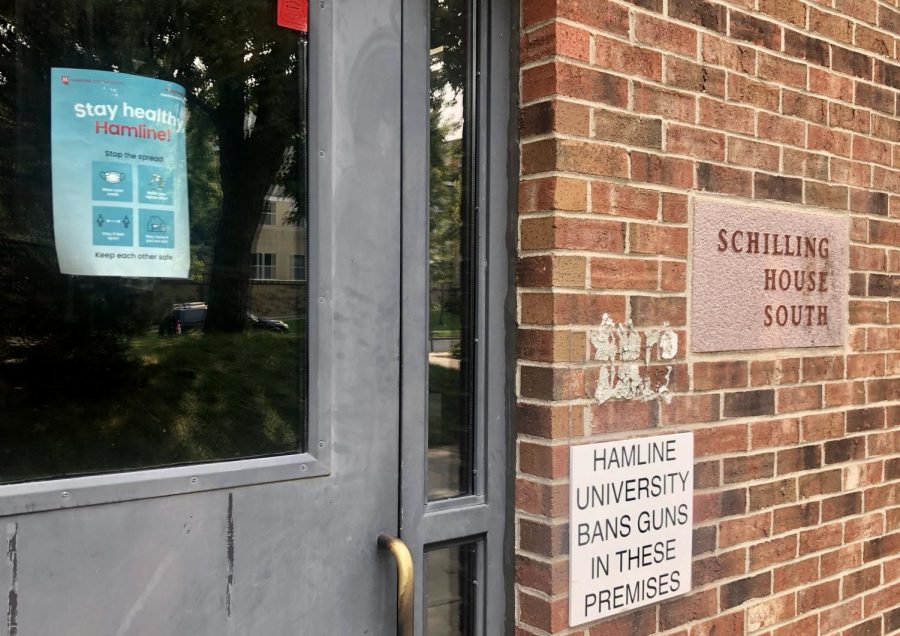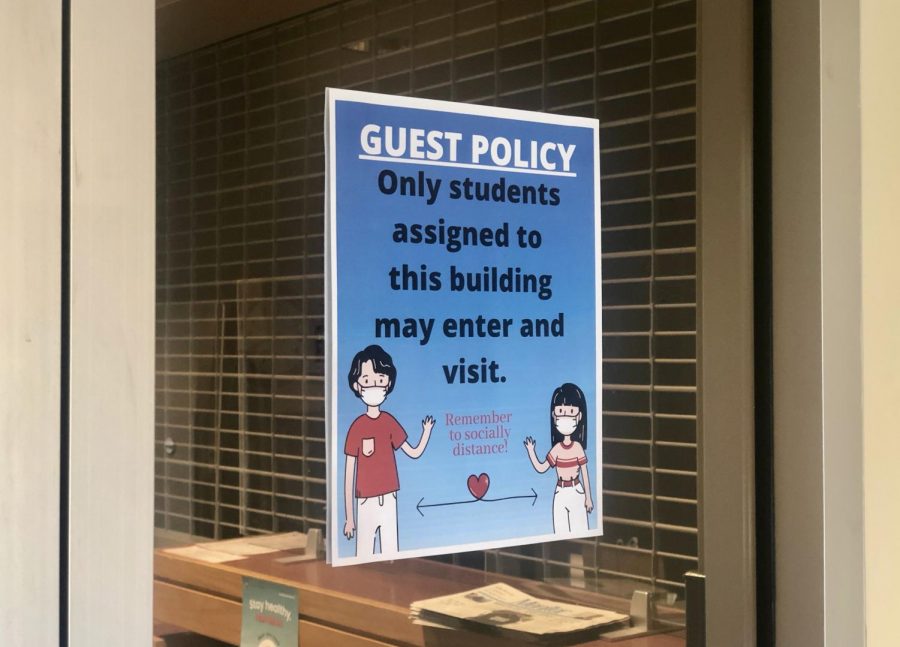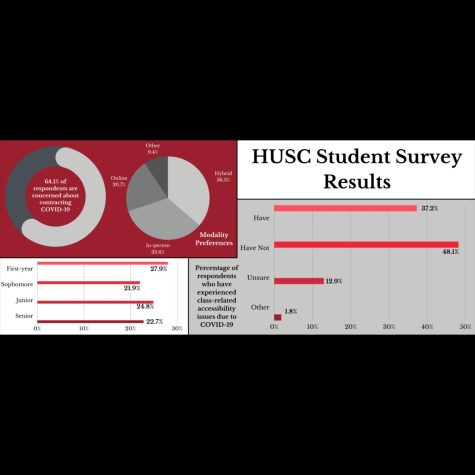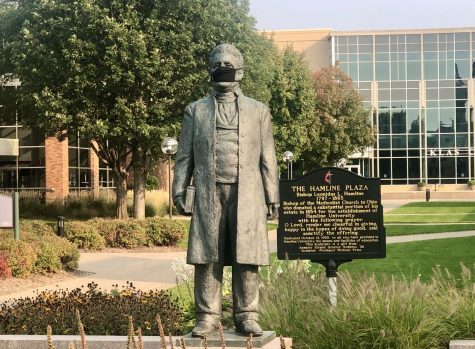A tale of unintended consequences
The inter-dorm ban; practical precaution or dangerous blunder?
Sabrina Merrit
Posted outside the lobby of the Hamline Apartments, a sign reminds students that only residents of the building may enter and visit.
September 24, 2020
New students living on campus, and students who made the decision to return to campus this semester have found themselves in an environment unlike anything they’ve probably ever experienced before. An environment full of tape and stickers telling them where to sit or stand, locked doors, foul-smelling hand-sanitizer dispensers, saran-wrapped drinking fountains and caution tape. Measures that, unpleasant or not, keep us safe.
This is not an article against these measures. This column is about one specific rule; the inter-dorm travel ban.
There’s nothing outwardly illogical about preventing students from visiting each other’s dorm buildings during a pandemic. When I first heard about it, I didn’t bat an eye.
As the semester has taken off, however, I’ve started to wonder if the rule is really beneficial enough to justify the damage it’s causing.
The greatest toll that this mandate has taken has been on the first year population.
“I’m not gonna lie, I’ve been feeling very lonely,” says first year Katelyn Mikesell, “I’ve just had to kind of sit in my dorm, or hang out with the same two people from my floor, and it doesn’t feel the way college should feel. I don’t think I’m the only one in [thinking] that.”
She absolutely isn’t the only one. As a NSM, I spend a considerable amount of time around first-years, and this feeling of loneliness that Mikesell is experiencing isn’t an outbreak, it’s an epidemic.
Upperclassmen such as myself returned to Hamline with pre-established friendships and connections that can be built on.
“Being a first-year student is a lot different,” says Mikesell, “Being put in this completely new environment, and then… isolation. That’s like, a perfect concoction for depression.”
Aside from mental health, the inter-res hall travel ban could also impact student’s physical health.

Minimal signage is present outside many dorms on Hamline’s campus, leaving students uncertain about what the COVID-19 policies are for residential housing.
Students can hypothetically still gather in places like Anderson, or in the blue garden (those these days are numbered by the looming approach of winter) to partake in legal activities with one another so long as they maintain distancing guidelines. However, when students inevitably (and I do mean inevitably) want to partake in illegal activities like drinking with their friends, they no longer have a space like the dorms to do so.
My concern is that this will lead people to turn off campus to things like house parties.
It’s shortsighted and irrational to believe that college students are simply going to stop drinking. That’s like expecting Newton’s apple to fall upwards.
I’d rather see students breaking laws in small groups in their own dorms than going out and risking the health of the entire community at a party.
Beyond this, the ban is absolutely unenforceable by any practical means. Putting upwards of six hundred gorgeous college students in a three-block area with lots of beds and expecting them to remain physically-distanced and celibate seems like a pretty major oversight. And despite what some guys might tell you, no one has a long enough phallic appendage to satisfy social distancing guidelines.
On top of all of everything, it’s really hard to feel like keeping away from each other’s dorms is doing much good when we all share the same classrooms and dining hall.
What’s the solution? I don’t know. Maybe it should’ve been only first years on campus this semester. Maybe we shouldn’t be here at all. The truth is, the inter-dorm travel ban might be worth it after all, I really can’t say.
One thing I do know for certain is that the people behind Hamline’s Covid response are far more competent in matters like these than I am, and I trust their judgement. We all should continue doing what they recommend. The last thing I would want to do is tread on the fantastic work that they’ve been doing throughout campus.
I just worry that they aren’t seeing the full extent of this rule’s consequences.




